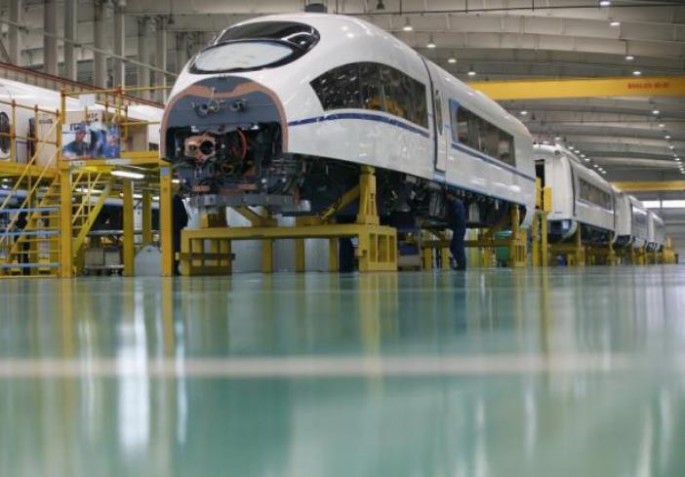China’s high-speed trainmakers continue to treat workers and employees as valuable human resources, even breaking gender barriers, amid overcapacity and weak market demand affecting many sectors that led to layoffs, China Daily reported.
According to the report, this contributes to the active state of the country's train industry and helps make China's bullet trains safe and export-worthy.
The report mentioned about Liu Lili, a female electrician who works with CRRC Tangshan Co. Ltd., one of the bullet trainmakers of China Railway Rolling Stock Corp., the country's largest train manufacturer. Liu has been working in the assembly workshop for more than 14 years and her job involves connecting thousands of electric wires for the trains' onboard.
Workers like Liu and her colleagues have helped build more than 310 high-speed trains, maglev trains and urban rail transit trains with high-quality electrical systems, over the last eight years, the report added.
"I didn't choose this particular line of work," Liu said. "After I graduated from a local technical college, I had never imagined I would one day work as an electrician on bullet trains. But here I am, in what is generally regarded as a male bastion."
Precision and extreme care mark Liu's trade, which is significant to China's bullet trains that can run up to 480 kilometers per hour. Typically, they run in the 300-350 kmph range.
Electricians like Liu connect more than 100,000 wires in various sizes and leaves no margin for error as even a tiny error could lead to disasters.
Before trains are inducted into service, electrical equipment undergo several meticulous tests.
Liu and her workmates were encouraged by their employer to use their rich experience to write guidelines so that other workers would know how to connect wires, use plugs and other electrical fittings during operations.
The report said that these guidelines are now used by workers when they need to check a wire's connection or a plug's function at least five times before the trains get approval to run.
The system of inspection labels were introduced by Liu and her team on which checking duty staff must sign so that procedures followed could be traced back.
This rigorous procedure has resulted in incident-free operations, the report said. Bullet trains manufactured by CRRC Tangshan, Liu's employer, have run for 400 million kilometers without accident.
To create permanent mechanisms to ensure safety, CRRC sponsored five vocational schools, including engineering and metallurgical machinery colleges in Tangshan in Hebei Province, and Shenyang, Liaoning Province, to train students interested to work in the company.
According to CRRC, mechanical engineering courses will be taught in English and German, and all textbooks, uniforms and tools will be shipped from Germany. After graduation, trainees can receive job offers and may be given the chance to study through scholarships in Britain and Germany.
"Overcapacity and weak market demand have caused many manufacturers in other industries to either report financial losses or slow growth rate, but they haven't affected trainmakers much," said Hou Zhigang, chairman of CRRC Tangshan.



























